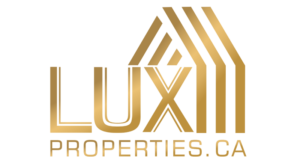Buying Houses in Leslie Street Toronto
Buying Houses in Leslie Street Toronto offers both charm and convenience. This street is known for its peaceful neighborhoods. Homes here are perfect for families and professionals. Public transportation is easily accessible. The street connects well with major highways. Buying Houses in Leslie Street Toronto gives quick access to downtown Toronto. Schools, parks, and libraries are nearby. The community is friendly and welcoming. Safety and cleanliness are top features here. You’ll find detached homes, semis, and modern condos. Many houses have private driveways and green lawns. Buying Houses in Leslie Street Toronto means living near great amenities.
Grocery stores and shopping centers are close. Restaurants and cafes offer many food choices. The area is also rich in natural beauty. Trails and green spaces make it ideal for outdoor lovers. Property values are steadily increasing. Buying now could mean strong future returns. Leslie Street is a mix of old charm and new development. You’ll see both classic homes and modern builds. The street runs through vibrant and growing areas. Buying Houses in Leslie Street Toronto is also good for renting. Tenants look for clean, quiet, and connected areas.
The demand for rental units remains high. This makes it attractive for real estate investors. Schools in the area have good reputations. Daycares and community centers are available too. Buying Houses in Leslie Street Toronto is a long-term smart choice. It offers lifestyle, value, and accessibility. Whether for personal use or investment, it stands out. Real estate agents with local knowledge can assist you. Explore listings and visit the neighborhoods today. Buying Houses in Leslie Street Toronto could be your next great move. Your ideal home might be waiting just around the corner.
Buying Houses in Leslie Street Toronto : Available Types And Prices
Leslie Street runs through multiple Toronto neighborhoods. It stretches from the waterfront up to northern suburbs. Therefore, it offers diverse housing options. The area includes both urban and residential zones. Some parts feel quiet and suburban. Others are busy and vibrant. This variety attracts different types of buyers. Leslieville, in the south, is very popular. It features trendy shops and historic homes. Further north, you’ll find newer developments and green spaces. As a result, housing prices differ along the street. Public transit is widely available here. So, residents enjoy easy access to downtown. Overall, Leslie Street offers variety and convenience.
Detached Houses and Their Prices
Detached houses on Leslie Street are in high demand. These homes offer full ownership and privacy. They usually come with yards or garages. Prices vary greatly depending on location. In Leslieville, detached homes start around $1.4 million. However, larger or newer homes can exceed $2 million. Further north, prices may drop slightly. Still, due to low supply, they remain costly. These homes often attract families. They want space and long-term value. Some homes are century-old properties. Others are modern rebuilds. Therefore, architectural styles also vary. Buyers should consider age and condition carefully. Renovation needs can increase total costs quickly.
Semi-Detached Homes Availability
Semi-detached homes share one wall with a neighbor. However, they still offer private yards and entrances. These are common along Leslie Street. Especially in midtown and east-end areas. Prices are generally lower than detached homes. For example, many start around $1 million. But depending on upgrades, some go higher. These homes appeal to young families. Many want affordability but still need space. Some older semis have been renovated. Others are still in original condition. Consequently, pricing can differ block by block. Legal duplexes may exist in these homes too. That allows for rental income. Still, permits must be verified.
Townhouses and Rowhouses Options
Townhouses are found along Leslie Street, especially in newer developments. They typically offer three floors of living space. Some include small garages or rooftop terraces. These homes are perfect for first-time buyers. They offer better affordability than detached homes. Prices often start at $800,000. However, modern units may approach $1.1 million. Maintenance fees may apply in townhouse complexes. These cover snow removal or landscaping. Rowhouses, meanwhile, are older versions of townhomes. They usually don’t have fees. However, they may need more repairs. Despite that, they offer great walkability and character. Buyers should weigh lifestyle versus long-term costs.
Condominium Living on Leslie Street
Condos are increasingly popular along Leslie Street. Especially near major intersections like Sheppard or Queen. They offer security, amenities, and lower entry prices. Many buildings have gyms, pools, and concierge services. Prices start around $600,000 for one-bedroom units. Two-bedroom condos often begin at $750,000. Luxury condos can exceed $1 million. These homes attract singles, retirees, and young professionals. Also, maintenance fees can be high. That said, they reduce personal upkeep responsibilities. Buyers should review condo documents carefully. They should also budget for monthly fees. Because condo rules may restrict pets or renovations. Therefore, understanding the bylaws is important.
Lofts and Boutique Developments
South Leslie Street includes several loft-style buildings. These are popular among artists and professionals. Lofts feature high ceilings and open spaces. Many have exposed brick or beams. They are often converted from old factories. Some are boutique developments with few units. Prices vary from $800,000 to $1.3 million. Smaller units cost less but may lack parking. Lofts are ideal for buyers wanting character. However, not all include outdoor space. So, lifestyle preference matters. Maintenance fees depend on building age and size. Also, some lofts don’t allow structural changes. Buyers should verify upgrade permissions. Lofts rarely stay long on the market.
New Construction and Pre-Construction Projects
New builds are emerging in the northern parts of Leslie Street. These include condos, townhouses, and stacked homes. Pre-construction offers lower early pricing. However, closing dates are often delayed. Prices start from $700,000 for new condos. Townhomes can go beyond $1.1 million. While new builds offer warranties, they also carry risks. For instance, final layouts can change. Closing costs are higher than resale homes. Buyers must budget for builder adjustments. Despite this, energy efficiency and smart tech attract many. Some developers offer limited-time discounts. Pre-approval is essential for these purchases. Legal review of builder contracts is highly recommended.
Rental Properties and Income Potential
Some buyers purchase homes to rent them out. Leslie Street offers strong rental demand. Proximity to transit and shops makes it ideal. Detached homes can earn over $3,500 monthly. Basement apartments bring in extra income. Condos rent for $2,500 to $3,200 per month. That depends on location and size. Investors should factor in taxes and maintenance. Also, tenant laws in Ontario are strict. Landlords must follow legal eviction processes. Newer condos may have rental restrictions. Therefore, checking bylaws is essential. Rental income can help cover mortgages. But proper screening and leases are vital. Local property managers can assist if needed.
Affordable Housing and Subsidized Options
Toronto offers some affordable housing programs. However, supply is limited and demand is high. Leslie Street includes subsidized buildings. These serve low-income families or seniors. Waitlists can be several years long. Prices in these units are based on income. Applicants must meet specific criteria. Also, some co-op housing exists nearby. These homes require membership and monthly contributions. But co-ops often foster strong community ties. Not all buyers qualify for these programs. Still, knowing about them helps with planning. Buyers interested in affordable housing should apply early. Community agencies can assist with paperwork. Eligibility changes based on government updates.
Factors That Influence Price Variation
Several factors affect housing prices along Leslie Street. First, location plays the biggest role. Proximity to transit, parks, and schools adds value. South Leslie homes are pricier due to demand. Meanwhile, northern areas may offer better deals. Second, property age and condition matter. Newly renovated homes cost more. But they need fewer repairs. Third, lot size affects price. Larger lots support future expansions. Additionally, zoning impacts value. For example, duplex zoning allows higher future income. Lastly, market conditions affect affordability. Interest rates and inventory levels also influence prices. Therefore, timing matters when buying a home.
The Legal Process of Buying Houses in Leslie Street Toronto
Understanding the Legal Landscape
Buying property on Leslie Street involves several legal steps. Although it may seem simple, the process is highly structured. Every buyer must follow Ontario’s property laws. Also, buyers must comply with municipal regulations. Therefore, understanding these requirements is essential. Legal mistakes can lead to costly delays. Moreover, local bylaws vary by neighborhood. This makes legal knowledge even more important. Most buyers hire a real estate lawyer. A lawyer ensures every document is correct. This reduces legal risk throughout the purchase. Without legal help, buyers may miss important steps. Even experienced investors rely on legal advice.
The Role of the Real Estate Lawyer
A real estate lawyer reviews the Agreement of Purchase and Sale. They also check the property title for issues. If any liens exist, they must be removed. Lawyers also confirm zoning and land use. This helps avoid future legal disputes. Furthermore, they handle the property transfer process. A lawyer holds funds in trust until closing. They also pay land transfer taxes. Without legal support, mistakes can delay ownership. Therefore, choosing a qualified lawyer is crucial. Communication with your lawyer should be frequent. Always ask questions if something is unclear. Legal advice is worth the investment.
Drafting and Reviewing the Offer
Your real estate agent drafts the offer. Still, your lawyer should review the document. The offer becomes a binding contract once accepted. However, you may include legal conditions. For example, financing and home inspection clauses. These protect you if issues arise. Additionally, you can request repairs or credits. Your lawyer will ensure wording is precise. Ambiguous language may cause conflict later. Therefore, clarity in contracts is vital. Always review the entire agreement carefully. Don’t rely solely on your agent’s opinion. Legal review gives you confidence before signing. Once signed, changes are difficult to enforce.


